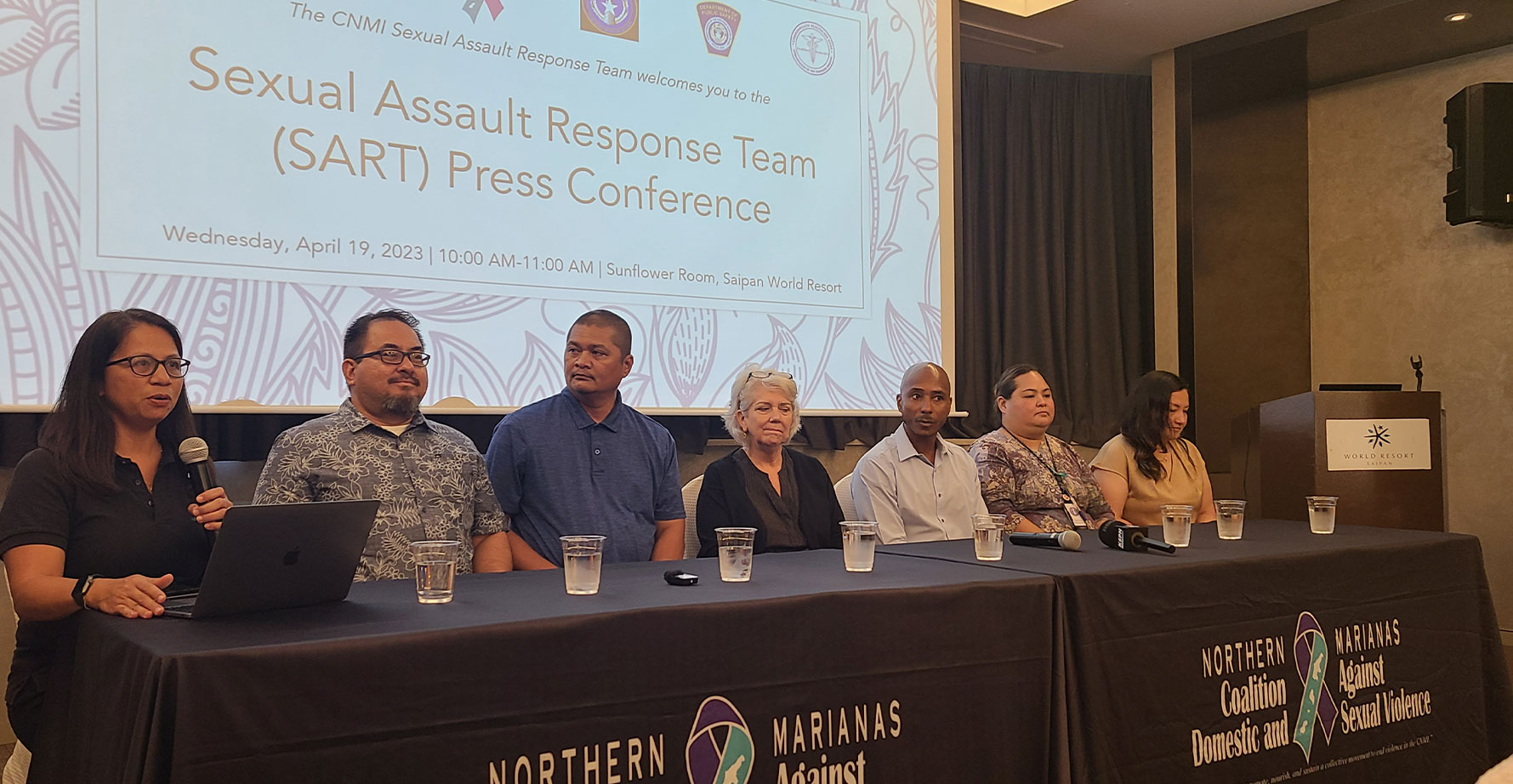‘When you see something, say something’
Seeking to better serve and help individuals in the community who battle with depression, mental health, trauma in the home, or thoughts of suicide, the Community Guidance Center staff gathered last Thursday at the Aqua Resort Club in Achugao not only for a training session but to also share and discuss what they learned to do in certain situations.
The training session, a quarterly meeting of the direct services and treatment teams, also known as DSATT, also had special guest from Hawaii, Wendy Schwartz, a licensed clinical social worker at the VA Pacific Islands Healthcare System.
She shared some steps she’s learned working in the suicide prevention program, and in case management for those suffering from severe and persistent mental illness.
Their meeting last Thursday focused on communicating with individuals who struggle with suicidal thoughts, Schwartz said.
I felt like this was a great opportunity for us to get together and create some more learning opportunities for people to be able to practice these skills, to be able to talk about suicide in our community, to be able to use this specific tool, the Columbia Suicide Severity Rating Tool, to be able to determine how much assistance somebody needs and be able to provide the right kind of help to people in need,” she said.
As discussed that day, the steps may vary slightly when addressing different individuals but the structure stays the same: communication is the key, Schwartz said, and suicide prevention is everyone’s business.
Sometimes there is cultural value that everyone needs to mind their own business, but sometimes, especially when it comes to suicide prevention, it can be helpful to be a little nosy, she said.
If someone sees something, but is uncomfortable with confronting the person, there is a hotline for emergencies like these—the 988 hotline.
“So if you’re paying attention, you notice something, and you feel comfortable going to talk to that person, that’s great. If you don’t feel comfortable going to talk to that person, you can always call 988,” she said.
Also, sometimes learning new skills can help people feel more comfortable talking to somebody, Schwartz said, adding that there are trainings that are offered in the community that help people learn how to ask the question: “Are you thinking about suicide?”
“So that’s also another opportunity where people can learn about suicide and learn about how to ask the question and then how to give people the help that they need,” she said.
Schwartz said the proper tools can help guide people in these types of conversation, “but it really is about providing people the opportunity to share about what it is that they’re going through. So yes, we have a specific set of questions that we’re asking, but we’re also really just having a conversation. We’re creating a space where people can trust us and they can feel like they can trust about the pain that they’re going through.”
During the training, which lasted from 8am to 12:30pm, there were also role-playing situations, which not only caused gathered staff to share their concerns and questions, but also glean knowledge of their team members.
Dr. Glenda George, director of Behavioral Health Services at CGC, shared that training sessions are not only important for the clients they work with, but is also helpful for the emotional intelligence and mental health of their staff.
“Part of the reason we have these quarterly direct service and treatment team meetings is we want to create an atmosphere of learning, mentorship, and collaboration amongst our team members. And again, the intention is that we can develop skills within our programs so that our staff are well-equipped and have the knowledge they need to do the work they do. At the same time, they’re fostering a nurturing and supportive environment to continue to enjoy the work that they do. Because we understand that mental health can have a heavy impact on their own personal self-care and well-being, we want to ensure that we take care of our staff and give them that opportunity as well to take care of themselves. And, most importantly, feel confident in the work that they do through furthering their skills and their ability to work with the community.”

Community Guidance Center staff gathered together to learn and discuss how to better serve their community during the direct services and treatment teams meeting last Thursday at the Aqua Resort Club in Achugao.
-CHRYSTAL MARINO







